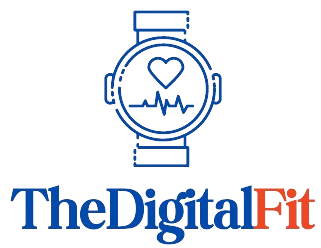Microsoft has announced a series of new healthcare data and artificial intelligence (AI) tools to assist health systems build AI applications more quickly and save clinicians time on administrative tasks.
The announced AI-driven solutions include new AI models in Azure AI Studio, healthcare data solutions in Microsoft Fabric, a healthcare agent service in Copilot Studio, and an AI-powered nursing workflow solution.
Also Read: Microsoft introduces new category of Windows PCs ‘Copilot plus PCs’ designed for AI
“Microsoft’s AI-powered solutions are helping lead these efforts by streamlining workflows, improving data integration, and utilizing AI to deliver better outcomes for healthcare professionals, researchers and scientists, payors, providers, medtech developers, and ultimately the patients they all serve,” said Joe Petro, corporate vice president, Healthcare and Life Sciences Solutions and Platforms at Microsoft.
Healthcare AI models in Azure AI Studio
Microsoft has announced the launch of healthcare AI models, a collection of cutting-edge multimodal medical imaging foundation models available in the Azure AI model catalogue.
In collaboration with partners such as Providence and Paige.ai, these models allow healthcare organisations to integrate and analyse various data types, including medical imaging, genomics, and clinical records.
Leveraging these advanced models as a foundation, organisations can quickly build, customise, and deploy AI solutions tailored to their specific needs, while reducing the significant compute and data demands typically required to develop multimodal models from scratch.
“These models can complement human expertise by providing insights beyond traditional visual interpretation and, as we move toward a more integrated, multimodal approach, will reshape the future of medicine,” said Carlo Bifulco, MD, chief medical officer of Providence Genomics and a co-author of the Prov-GigaPath study.
Healthcare data solutions in Microsoft Fabric
Healthcare data has traditionally been hard to access due to its unstructured nature and limitations in data management systems, hindering comprehensive patient insights. With Microsoft Fabric’s general availability of healthcare data solutions, organisations can now access, manage, and act on data through a unified AI-powered platform.
Healthcare agent service in Copilot Studio
Healthcare organizations face challenges like workforce shortages, rising costs, and growing patient care demands. Generative AI offers solutions by automating administrative tasks, analysing large datasets for insights, and assisting healthcare professionals in decision-making.
To address this, Microsoft has announced a public preview of its healthcare agent service in Copilot Studio, allowing organizations to build AI-powered agents for tasks such as appointment scheduling, clinical trial matching, and patient triaging.
AI-powered nursing workflow solution
With a projected shortage of 4.5 million nurses by 2030, as estimated by the World Health Organization, there is an increasing need for technology to support the nursing profession.
Microsoft has shared about its active collaboration with several leading healthcare organisations, including Advocate Health, Baptist Health of Northeast Florida, Duke Health, Intermountain Health Saint Joseph Hospital, Mercy, Northwestern Medicine, Stanford Health Care, and Tampa General Hospital, with which it is working on building an AI solution using ambient technology to address nursing documentation by drafting flowsheets for review, allowing nurses to focus less on paperwork and more on their patients.
Also Read: Women Tech startup uses AI to inspire people to prioritise self-care
This innovation expands on the company’s long-standing strategic collaboration and joint development initiatives with Epic.
“Together with Microsoft, we’re using AI-powered ambient voice technology to populate patient assessments. Nurses using the tool are already sharing positive feedback on how it enhances personalised patient interactions,” said Corey Miller, vice president of R&D at Epic.

